
home > articles > apologetics > Introduction To Apologetics
Part 1
Introduction To Apologetics
By Dr. Andrew Corbett
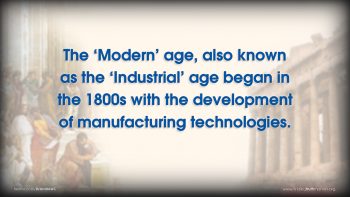 The ‘Modern’ age, also known as the ‘Industrial’ age began in the 1800s with the development of manufacturing technologies. This age was characterised by scientific discoveries and engineering advances. It lasted up until the fall of the Berlin Wall in November 1991, just as the internet was being introduced to the world. This began the ‘Information’ age, which has become ‘the age of ideas.’
The ‘Modern’ age, also known as the ‘Industrial’ age began in the 1800s with the development of manufacturing technologies. This age was characterised by scientific discoveries and engineering advances. It lasted up until the fall of the Berlin Wall in November 1991, just as the internet was being introduced to the world. This began the ‘Information’ age, which has become ‘the age of ideas.’
Ideas have consequences, and bad ideas have victims.
Jesus seems to have forewarned His followers about this challenge to how readily people would be to accept the gospel. With some people, the truth of the gospel would immediately meet intellectual objections. For the gospel to be effective with these kinds of people, their intellectual objections must first be dealt with.
“Listen! Behold, a sower went out to sow. And as he sowed, some seed fell along the path, and the birds came and devoured it. Other seed fell on rocky ground, where it did not have much soil, and immediately it sprang up, since it had no depth of soil. And when the sun rose, it was scorched, and since it had no root, it withered away. Other seed fell among thorns, and the thorns grew up and choked it, and it yielded no grain. And other seeds fell into good soil and produced grain, growing up and increasing and yielding thirtyfold and sixtyfold and a hundredfold.”
Mark 4:3-8
Wrong ideas are like ‘rocky soil’ which inhibit the ‘seed’ of the Word of God from taking root. This is why apologetics is called for and necessary to prepare the way for the Word of God to enter human hearts.
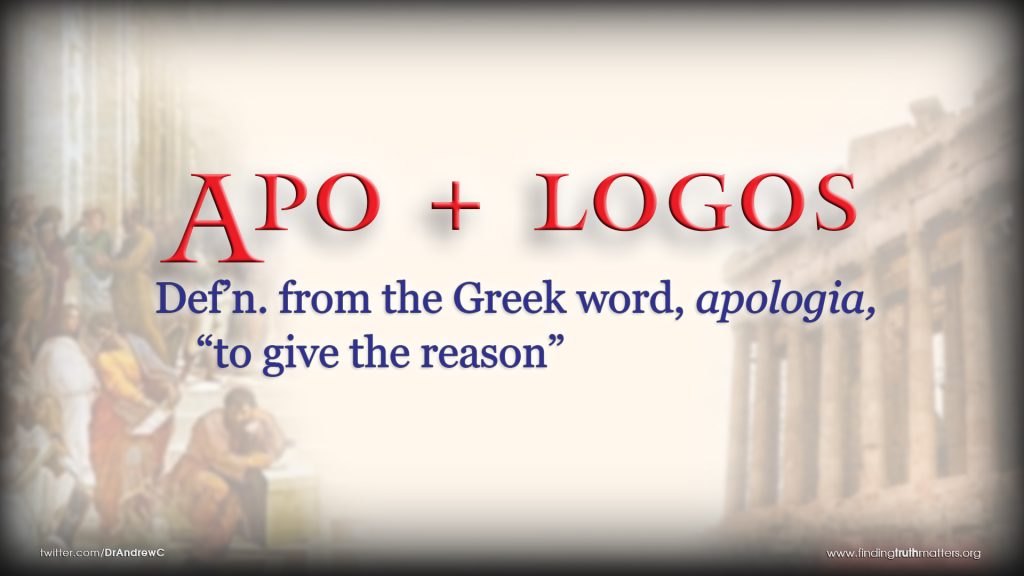
Apologetics comes from the Greek word: “Apologia”. TheApostle Peter uses this word in First Peter 3:15, “always being prepared to make a defense (Gr. apologia) to anyone who asks you for a reason for the hope that is in you.”
APO – Def’n. Greek word, “deriving from, to deliver”.
LOGOS – Def’n. Greek word, “the word, the reason”.
APO + LOGOS – Def’n. from the Greek word, apologia, “to give the reason”.
Apologetics equips the believer to:
- Know the truth.
- Develop thoughtful discernment
- Hone the wisdom to share it
Apologetics deals with the objections – intellectual, social, emotional – to the claims of Christianity.
but in your hearts honor Christ the Lord as holy, always being prepared to make a defense to anyone who asks you for a reason for the hope that is in you; yet do it with gentleness and respect, having a good conscience, so that, when you are slandered, those who revile your good behaviour in Christ may be put to shame.
First Peter 3:15-16
We now live in a world that some are calling a ‘Post Truth’ age where the main objections to Christianity are not merely intellectual, but more often than not are moral and emotional.
- Our apologetics must be bathed in prayer for those we are sharing with.
- Good apologetics involves as much listening as it does talking.
- Good apologetics involves how (our manner) we respond more than what we respond with.
The next time someone opposes your Christian worldview, and thinks that you only have ‘blind faith’ you can gently and respectfully respond with, “I have good reasons for believing Christianity is true.”
[Part 2]
-
Sale!

The Problem Of Failure, Premium Audio
Original price was: $1.75.$0.00Current price is: $0.00. -
Sale!
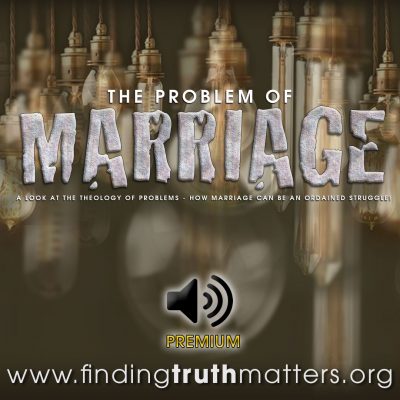
The Problem Of Marriage, Premium Audio
Original price was: $1.75.$0.95Current price is: $0.95. -
Sale!

The Problem With Money, Premium Audio
Original price was: $1.75.$0.95Current price is: $0.95. -
Sale!

The Problem With Children, Premium Audio
Original price was: $1.75.$0.95Current price is: $0.95. -
Sale!
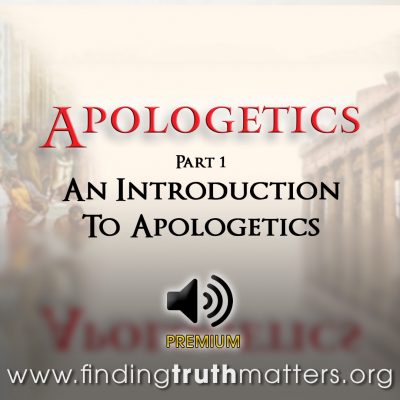
Apologetics Part 1 – Introduction To Apologetics, Premium Audio
Original price was: $1.75.$0.95Current price is: $0.95. -
Sale!
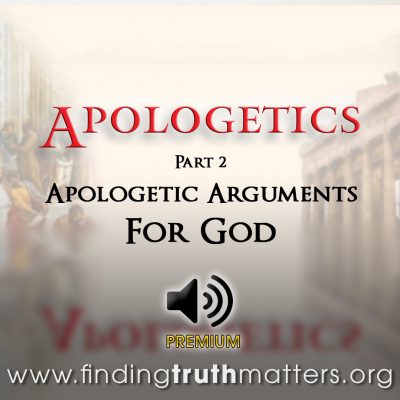
Apologetics Part 2 – The Apologetic Arguments For God, Premium Audio
Original price was: $1.75.$0.95Current price is: $0.95. -
Sale!
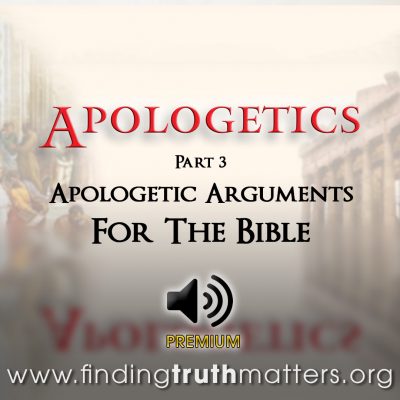
Apologetics Part 3 – The Apologetic Arguments For The Bible, Premium Audio
Original price was: $1.75.$0.95Current price is: $0.95. -
Sale!
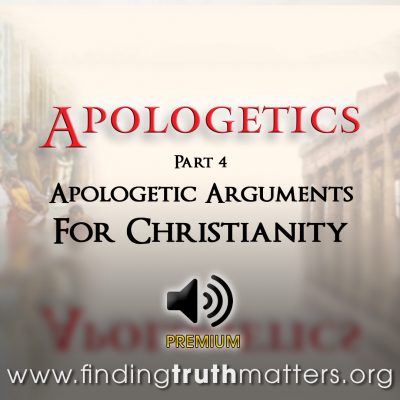
Apologetics Part 4 – The Apologetic Arguments For Christianity, Premium Audio
Original price was: $1.75.$0.95Current price is: $0.95.











































